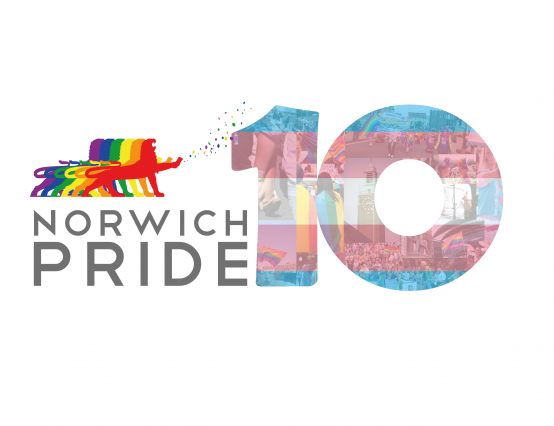Could you first introduce yourself to the reader?
My name is Danny Braverman. I am a theatre-maker and a teacher.
What does your job involve? Give us the typical outline of a day?
As a lecturer at Goldsmiths University, my time is split into three – management, teaching, and research. My research involves making theatre, so no day is ever the same.
As you can imagine, there is a LOT of teaching, mentoring, and guiding young people to create their own theatre. This also involves delivering seminars, lectures, whether they’re in the drama studios or a lecture room.
I like to help young people as much as I can; helping them find work experience during courses to find out how the industry works, and get them on the job ladder, which is incredibly difficult nowadays considering the amount of competition and the unfair concept of “It’s not what you know, it’s who you know”.
What’s great about your job?
What’s great is that there’s always a variety, and as I said, no day is ever the same. The job is also very creative, which isn’t the case with most jobs nowadays. People seem to care less about having a career and more about having a title or status – I don’t want that at all, and neither should any artist.
What are the bits you don’t like or find challenging?
Managing institutions is often quite difficult – the systems slow things down meaning stuff doesn’t get done on time. You also come up against a lot of bureaucracy, which is basically a lot of unnecessarily paperwork. It is incredibly irritating. But, you get that if you’re going to work in any big organisation, including big theatres, the BBC etc.
Working within a university or drama school, there is a lot of pressure on students, not just to do well academically, but just to live, breathe, sleep, and afford to pay back their loans.
This is also quite frustrating as I can only help these young people so much as a lecturer, especially when it comes to frustrations such as young people paying a ridiculous admin fee just for a doctor’s note when they’re too ill to work or study.
I think you really need a strong personality to cope with the precariousness of an arts career, and a lot of patience.
What are the highlights of your career to date?
I definitely loved creating and touring my solo show – Wot? No Fish!! - It’s been all over the world, most recently at the Brighton Festival, which was brilliant fun!
I also really enjoyed working at Theatre Royal Stratford East as Head of Education. All in all, I’ve enjoyed making great friends for life throughout my career and the way every day has a new challenge.
How did you get into an arts job? Have you also worked outside the arts?
My journey into the arts began after I completed my Drama and English degree at Birmingham University. A group of us decided to set up a theatre company called Bread & Circuses, which opened a lot of doors for me. Then, I got my first proper paid job working for London Bubble, running workshops with a theatre-in-a-tent that toured the London parks.
Later on, I became the CEO of a charity, working with disabled young adults and handling a huge range of tasks: like fundraising, organising personal care, housing and volunteering. Although it was an arts organisation, it was the furthest away I have ever been from making and teaching theatre.
Can you describe your biggest challenge so far in your career? How did you overcome it?
As the CEO of a charity! Having to manage finance, a staff of fifty, fifty volunteers, working with a voluntary management committee. The organisation was in a bad way when I took it over – it had failed an Ofsted Inspection. I’m glad to say that it is now thriving. However, it was incredibly stressful and tough, and that’s why I went back into the theatre world.
I learnt a couple of lessons from that experience – just because you have the skillset to do stuff, doesn’t mean you should. Can you guarantee you’ll like the job? Do you have the resilience to deal with any demands?
You need to learn to do things for yourself, so don’t just look at the job description and “I can do that”, consider the emotional resources – will you have support just in case? Don’t be a superhero and try and take everything on at once; you’re a human being, so make sure you take care of yourself.
Have you noticed any changes in the industry? If so, what?
Some good, some bad. There has been a greater recognition of diversity, which has led to less discrimination. But that doesn’t mean it’s gone away completely; just because we have more women, disabled people and people of colour in the workforce doesn’t mean we no longer have discrimination. We still have issues surrounding ageism, meaning young people find it harder to climb the ladder, and people without money behind them generally find it a lot harder as well.
You’ve been granted the ability to send a message to 16-year-old you. What do you say?
Don’t try and be in control of everything, because sh*t happens, and it will happen. Make some meaning out of it; take time to reflect learn from your mistakes and misfortunes.
Do you have any advice for young people interested in doing your kind of job?
Find out what drives you, and go for it, but make sure you do your research before jumping headfirst into stuff – if you’re setting up a business, you need to know how it all works, and be economically and financially literate.
On that note, if it doesn’t work out the first time, always have a Plan B.
Another piece of advice – build good relationships with others along your career, and be a collaborator. But whatever you do, do not let yourself be exploited, and try to stand-up for yourself.
However, this doesn’t mean you get carried away – the Arts isn’t the place for egomaniacs, or you won’t get very far. Leave your ego at the door, and enjoy a fulfilling and collaborative career.
Want more tips on working in the arts? Head on over to Creative Choices, a website filled to the brim with advice on how to get into the arts.








0 Comments